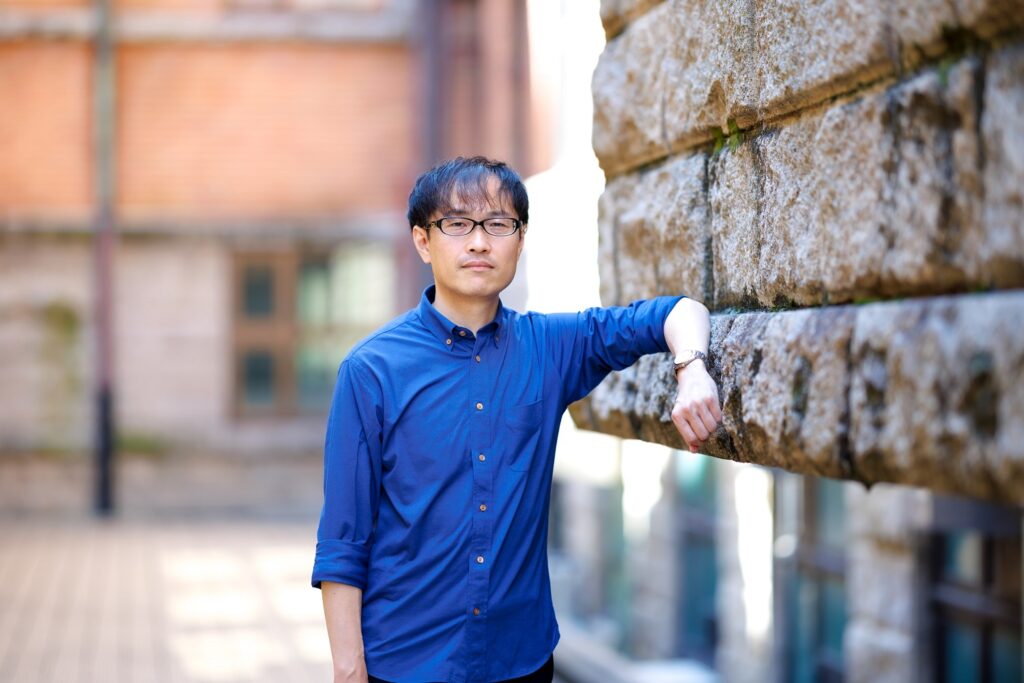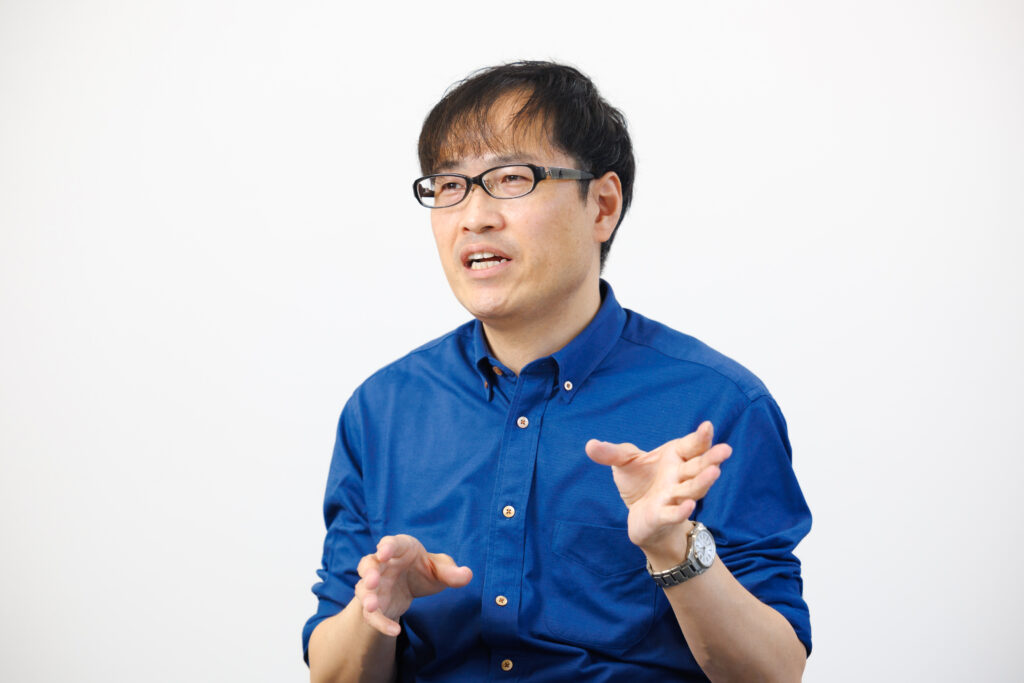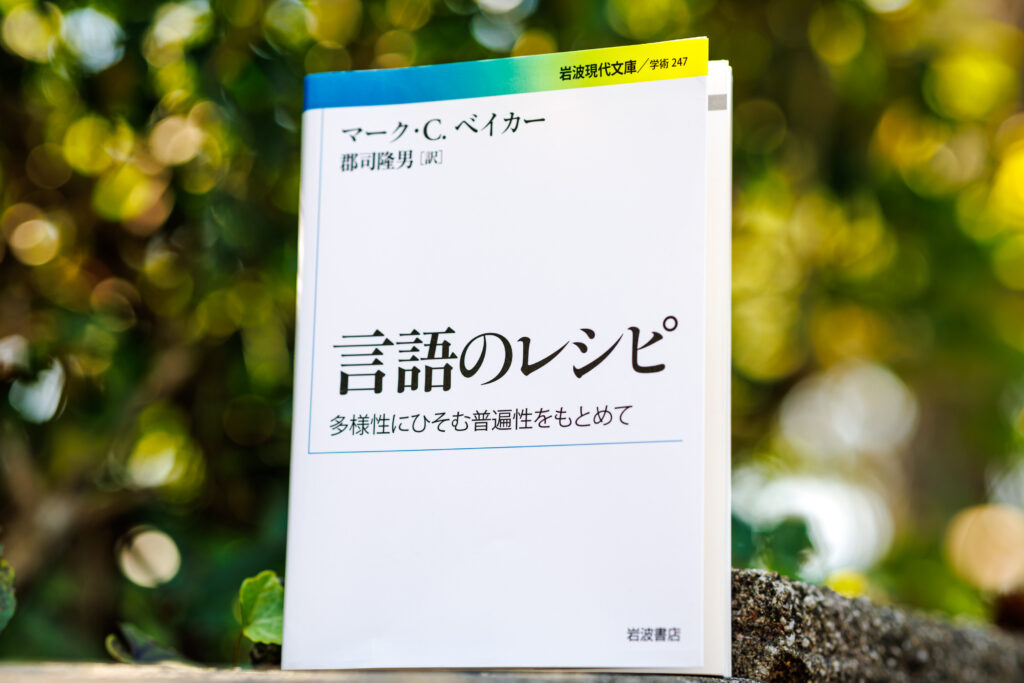
Associate Professor Takaomi Kato of the Graduate School of Languages and Linguistics researches syntax based on the theory of generative grammar. He uses the framework of generative grammar to research language as a natural science—and this, according to Kato, helps increase our understanding of humankind.
I research syntax through the prism of a linguistic theory known as “generative grammar,” which was proposed by the American linguist Noam Chomsky. Syntax is a field of linguistics that researches how sentences are constructed—how they are formed by combining individual words.
The theory of generative grammar can be applied to various languages, but the primary focus of my research is Japanese. When carrying out linguistic research within the framework of generative grammar, we take the intuition that speakers have for their native languages as data.
Linguistic research based on generative grammar is a branch of natural science

To give you an example of a speaker’s intuition, let us take a look at the following Japanese sentence: “Taroo-ga Ziroo-ni zibun-no syasin-o miseta” (‘Taroo showed Ziroo a picture of self’). Native speakers of Japanese have the intuition that the “zibun” (‘self’) refers to “Taroo” and not to “Ziroo.”
But let us change the sentence slightly to “Taroo-ga Ziroo-ni zibun-no syasin-o toraseta” (‘Taroo made Ziroo take a picture of self’). Now, the “zibun” can refer either to “Taroo” or to “Ziroo.” Native speakers of Japanese intuitively know this.
Since I myself am a native speaker of Japanese, it is easier for me to research Japanese; my intuition when it comes to English is extremely underdeveloped.
Linguistic research based on generative grammar involves observing and analyzing the intuitions that speakers have for their native languages; this, in turn, allows us to investigate what sort of knowledge these speakers have of their native languages.
Generative grammar hypothesizes that humans have an innate knowledge of language, which it calls “Universal Grammar.” Universal Grammar is the knowledge of properties that are common to all languages—and elucidating the nature of this knowledge is also an important goal of generative grammar.
The focus of generative grammar is the knowledge of language that humans possess, and this knowledge resides in our brains. Human brains are a part of humans, and humans are a part of the natural world.
It therefore follows that the focus of generative grammar is a part of the natural world, and that linguistic research based on generative grammar is a branch of natural science, which investigates various phenomena in the natural world.
Deepening our understanding of humankind
Acquiring knowledge of things you did not know, and growing to understand things you did not understand; deepening your understanding of your research topic and, as your understanding deepens, uncovering new questions. This might seem unexciting to some, but for me this is the joy of research. I enjoy questioning things that I had not questioned before.
However, the question of how theoretical research benefits society is hard to answer. I am often asked how my research benefits society; my field of research is basic science and, as such, it cannot easily be directly linked to practical or social applications.
In number theory and other branches of pure mathematics, for example, it is not unusual for it to take many years before research leads to technologies that contribute to society. My research is similar: it is unlikely that my research will immediately lead to societal benefits.
But only humans can use language. To research the knowledge that humans have of language is to deepen our understanding of humans themselves.
The book I recommend
“The atoms of language:The mind’s hidden rules of grammar”
by Mark C. Baker, Japanese translation by Takao Gunji, Iwanami gendai bunko

This book explains generative grammar and, in particular, describes the notion of parameters, assumed to capture cross-linguistic variation. It provides readers with a grasp of what modern linguistics has revealed about the diversity and universality of language.
-
Takaomi Kato
- Associate Professor
Master’s (Doctoral) Program in Linguistics
Graduate School of Languages and Linguistics
- Associate Professor
-
Associate Professor Takaomi Kato graduated from the Department of Anglo-American Studies, Faculty of Foreign Studies, Tokyo University of Foreign Studies, and received his Ph.D. in linguistics from Harvard University in 2006. After working as a lecturer at the Department of Liberal Arts, Faculty of Science Division I, Tokyo University of Science, and associate professor for the Department of Linguistics, Faculty of Foreign Studies, Sophia University, Kato was appointed to his current position in 2014.
- Master’s (Doctoral) Program in Linguistics
Interviewed: September 2022